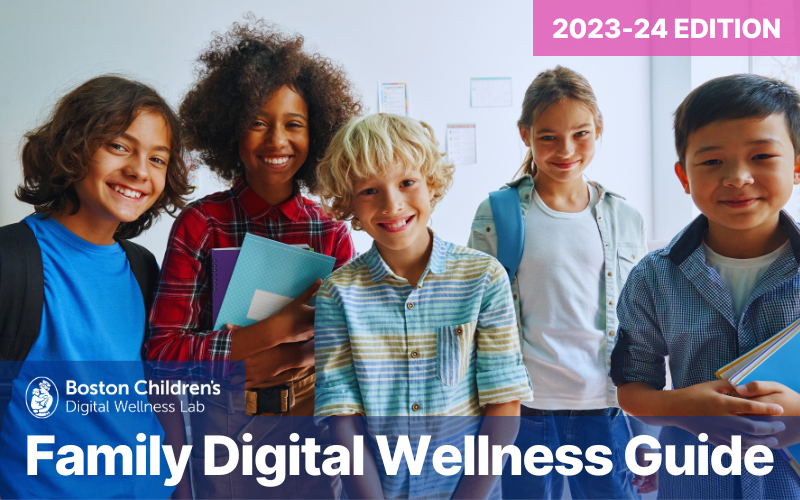All parents want the same thing: to raise their kids to be good humans. Part of that means learning what we can and passing that knowledge on to our kids.
But sometimes, the knowledge we gain as parents can feel burdensome and make us feel hesitant, fearful, or helpless.
Take media literacy. As we learn to think critically about the messages around us, we start to question advertising, think about representation in the shows we watch, and consider the bias that might be ingrained in the day’s news.
And as technology evolves, we do our best to keep up, both for ourselves and our kids. We hear about the dangers of too much screen time, cyberbullying, and hate-filled groups that spawned on social media. We learn how algorithms can turn seemingly innocuous searches into spirals of misinformation.
They say ignorance is bliss, and one can see why…this knowledge comes with a lot of responsibility.
So knowing all this, is there a way to feel empowered? How can we process media in a healthy way, and make social media a more positive presence in our lives?
These are tough questions, and I don’t have all the answers. I can, however, speak to my experience as a parent, which is informed by my work as a coach and as a podcaster (my show focuses on being and raising strong women).
For me, it feels like there’s a spectrum of talking points on this topic, with inner work and conscious consumption on one end, and thoughtful participation on the other. It’s like reading comprehension and learning how to write – we want to foster understanding and process information in a healthy way, while also embracing the possibilities, and responsibilities, of being participants and creators.
Here are some thoughts from all over the spectrum that seem to be working in our home.
Start by asking “I wonder…” A friend of mine, Alicia Haywood, executive director of iSpeakMedia, shared this tip when I interviewed her for the Know Them, Be Them, Raise Them podcast. By approaching media from a place of curiosity instead of judgment, we make room for discussion instead of shutting it down, and create a safe space for healthy dialogue to occur.
… and encourage assuming positive intent. It’s easy (and perhaps even encouraged in today’s cultural climate) to write off opposing views. But if we dig deeper, we may be able to find something to respect in what’s being said. Assuming positive intent means starting with the idea that a person meant well or was doing their best, regardless of what they say or do. It pushes us to rise above any knee-jerk negativity and into a more productive and positive headspace.
Make (social) media viewing a shared experience. Like it or not, social media is here to stay, and ignoring it as a valid form of entertainment could be a missed opportunity to connect with your kids. The next time your kid laughs at something on TikTok, gently ask them to show you what’s funny. Or after dinner, share an interesting video you watched on YouTube. Be curious, and discuss what you see – regardless of where it came from.
Fill your feeds with content that empowers and inspires you. Follow accounts and hashtags that support what you believe in and foster positive connection. Encourage your kids to do the same. For instance, if your child is diagnosed with ADHD, she could look up #adhdtips for info and support. Or if fighting climate change is important to you, a hashtag like #savetheplanet can lead you to new ideas on how to do just that.
Amplify others who embody civility, authenticity and responsibility. Be intentional about what you choose to like and share. Spread helpful content from creators who share their work in a thoughtful way.
Know your voice matters, regardless of the numbers. If you or your kids choose to create content, try not to let the newness of the technology or uncertainty about others’ reactions hold you back. And remember that the number of followers you have has little bearing on the quality of your message.
Post with kindness. Before commenting or posting, pause to confirm what your motivation is. Is your comment or content helpful? What’s the goal? Be sure it comes from a positive place – to be helpful, entertain, inform, motivate, etc. If you can’t say this, then it’s best to skip sharing it.
Carmelita (Cat) Tiu is passionate about personal growth, positive psychology, raising good humans and doing what you can with what you’ve got. She’s a mom of two girls, attorney, consultant, and life coach. Through her podcast, Know Them, Be Them, Raise Them (available on all major podcasting platforms) — she helps mindful and growth-oriented moms show up for themselves and their daughters with intention and grace. Find out more at knowberaisethem.com







